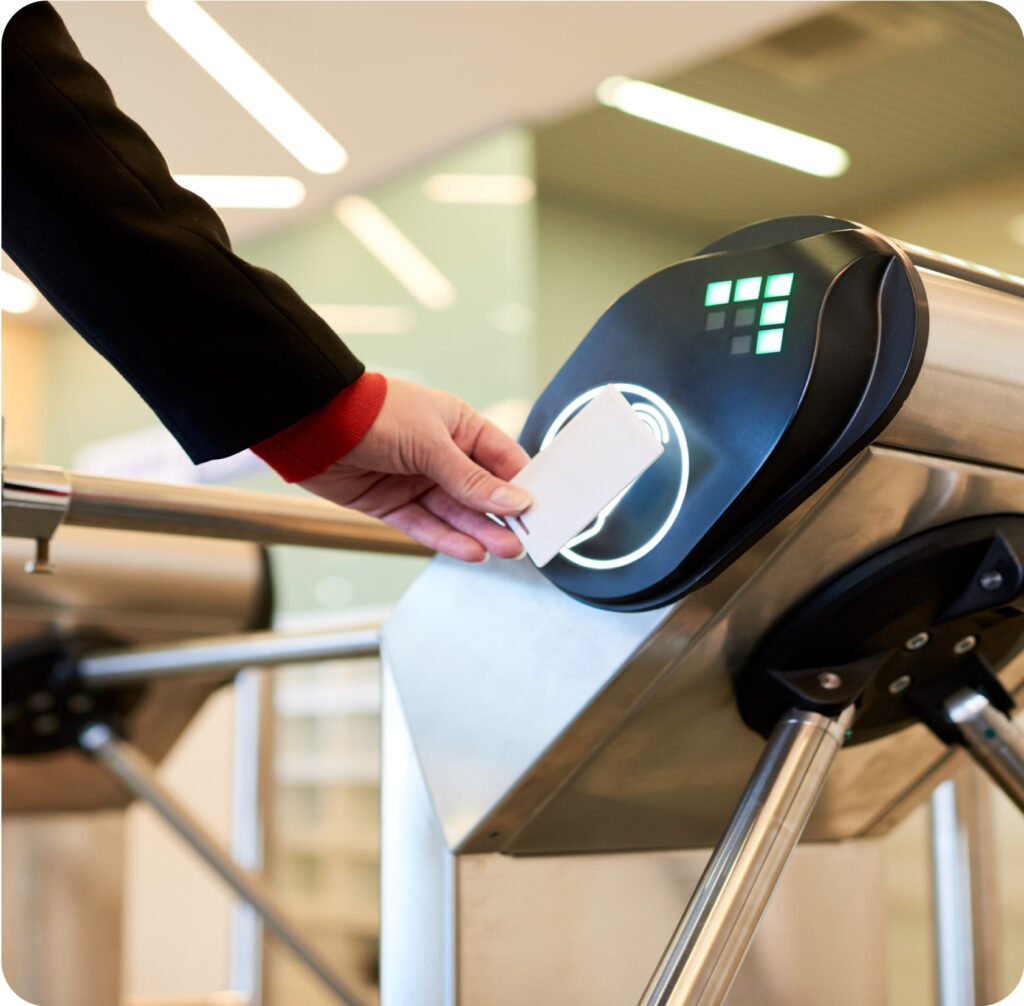See AI-powered security on full display at GSX 2025 | Sept 29 – Oct 1 Learn More >>

Alert Enterprise Guardian delivers a GEN AI powered enterprise-wide security, governance, compliance, policy enforcement, automation and workforce management to the Life sciences industry in a single platform taking your global physical identity & access management program to the next level. Whether it’s R&D, the production floor, QA/QC , clean rooms or beyond, Guardian has got you covered.
It’s an AI-powered platform for physical identity and access management, is used by numerous Fortune 500 companies worldwide. Here’s why customers select Guardian:
The following are the most common challenges faced by life sciences institutions:

Real-time integration of Guardian with leading HR systems and data lakes allows Supervisors/HR or Security Administrators to trigger a new Identity creation process (as part of onboarding) and auto-provisioning of access levels based on their role, location and access policies.
Similarly, the HR/Admins can initiate a “User Termination” workflow as part of the employee offboarding process. This triggers automated removal of identities and access levels across all connected systems.
Guardian integrates across various enterprise applications, physical facilities and critical assets including leading platforms like Genetec, Lenel, C-Cure 9000, Honeywell, AMAG, etc. This empowers the system users and managers to view/request access for themselves or others in the organization, and audit if the same access was granted via an established standard.
Admins/Users can create a new request (via a self-service portal) to add/remove specific access, either for themselves or others. These requests are sent for single or multi-step approval and auto-provisioning (once approved) based on the security needs. Contractor user access review is performed on a quarterly basis or as required by compliance. Guardian can be configured to deactivate a badge after a configurable number of days of inactivity.
The Guardian platform provides Asset Inventory Management for various asset types like metal keys, gate openers or other high valued assets, that can be assigned to individual employees.
The self-service portal (with SSO/AD) is fully capable of requesting assets, and the necessary approval process can be configured to record approvals and the chain-of-custody, end-to-end lifecycle of these assets.
Multiple compliance standards require both physical and logical access to be reviewed every 90 days. Alert Enterprise Guardian is capable of generating reports required for periodic reviews (daily, weekly, monthly, etc.) and ad-hoc reviews consisting of identities that are active, inactive and pending for approval, training, etc.
Guardian integrates with other IT, HR, Cybersecurity, Learning Management and Ticket Management systems to generate reports that provide a unified view of threats across the enterprise, and deploy rules-based solutions to prevent malicious acts, sabotage, terrorism and cyber threats.
Guardian tracks employees’ requests to access a new facility or area for themselves or another person, which enables the security personnel to correlate staff entry into sensitive locations with business reasons and prior access patterns.
AI-powered anomaly detection, like a badge swipe at off-shift hours, piggybacking and multiple access denied attempts, can be enabled for critical resources to reduce the risk from insiders. By enabling convergence between physical and logical security systems, the solution can gather and provide security intelligence from a number of sources and systems.
The AI policy engine also helps in detecting noise/duplicate alarms and provides only the qualified alarms for security teams to address. The alarm response dashboard can be an external application like ServiceNow, Splunk or others. The connector framework will help push these qualified alarms to any system.
Alert Enterprise Guardian delivers GEN AI powered enterprise-wide security, governance, compliance, policy enforcement, automation and workforce management to the Life Sciences industry in a single platform taking your global physical security identity & access management program to the next level. Whether its R&D, the production floor, QA/QC, cleanrooms and beyond, Guardian has
got you covered.
Similar governance can be performed on a need basis for contractors or temporary employees, with automatic alerts sent when there is a change in status for individuals, the ability to track the approvals and revocations.
For access requests and approvals, Guardian automatically checks security policies and documents compliance with requirements that verify who approved access to which facilities and for what duration of time. It also enforces the Segregation of Duties (SOD) which avoids access requests being self-approved.
Guardian connects with multiple Physical Access Control Systems (PACS) to manage physical access to critical facilities – from one place. It takes the guesswork out of approving access to physical locations or applications based on specific roles within the organization.
This enables the security staff to remove physical access to systems and facilities with a single click and invoke mitigating controls like additional video surveillance or proximity tracking.

Following are the common use cases which are available out-of-the-box:
The VMS can be deployed as a Kiosk (self-service) or Lobby (managed service) setup. The visitor registration process can be streamlined by providing a pre-registration workflow and enhanced by integrating with local or federal banned lists.
Access points are managed and locations are secured in a granular manner using a centralized management process. The solution provides front desk and security teams with streamlined, robust and secure processes for validating a visitor’s identity.
The Visitor Management System maintains logs that report on who visited a facility, who approved their visit, how long they stayed and which areas within the facility visitors were allowed to access. This provides the ability to conduct an audit and enhance search capabilities.
VMS enforces strict compliance standards when the visitor is requesting access to critical facilities. The access request form lists the expected time to check out as a mandatory field.
The solution triggers escalation emails when the visitor is not checked out after a certain number of hours (configurable). If the visitor is not checked out after 24 hours (configurable), VMS triggers an email to ESOC.
Upon visitor registration, VMS performs an automated background check, using the visitor’s ID or driver’s license information, against a set of watch lists (BOLO, do-notenter, etc.). escalation emails when the visitor is not checked out after a certain number of hours (configurable). If the visitor is not checked out after 24 hours (configurable), VMS triggers an email to ESOC.
The VMS solution provides a single interface for accurately identifying all the visitors in a facility and notifying them in-case of an emergency. This offers a holistic view of building occupancy at any given time.